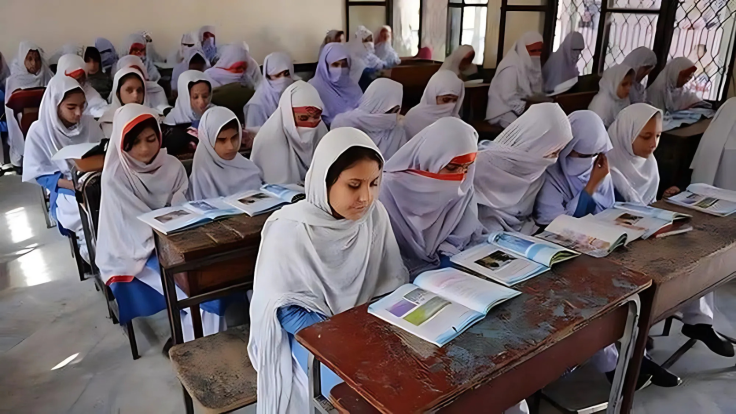Curricula Under the Microscope: IMPACT-se Examines Pakistan's Education System and Its Lasting Impact on Tolerance, Minorities, and Geopolitics
New report reveals how Pakistan's textbooks shape views on tolerance and minorities

Educational curricula shape norms throughout society in powerful ways that often go unseen or unrealised. While there are clearly multiple influences impacting young people, what is being learned and discussed in classrooms is one of the most impactful, accounting for the core of their formal education.
Curricula across the world have the potential to uplift and empower students or conversely, to limit them. Furthermore, the impact of education on children lasts through multiple generations with substantial societal implications. In fact, curricula are essentially top-down interventions into the deliberate development of society. Teacher instruction cultivates much more than the growth of knowledge; it also shapes norms, worldviews, and even civic responsibility.
The London-based Institute for Monitoring Peace and Cultural Tolerance in School Education (IMPACT-se) examines the role and quality of curricula around the world in an effort to ensure that these meet global standards of tolerance and peaceful education, such as those set out by UNESCO.
IMPACT-se's new report on Pakistan and its curriculum offers key insights into what is being taught in Pakistani classrooms, and what this says about attitudes being developed among the current generation of Pakistani youth. IMPACT-se's study shows that while some textbook passages promote tolerance and recognise diversity, the overall curriculum in Pakistan falls short of international educational standards, diverging from UNESCO's quality framework, developed by its International Bureau of Education, on religious, political, and ethnic issues.
Pakistan's contentious history with India, for example, is reflected in the curriculum by divisive views on India and indeed Hindus. IMPACT-se CEO Marcus Sheff commented that textbooks in Pakistan, 'frame India and sometimes Hindus in hostile and adversarial terms.' One example in the report documents how a textbook squarely blames 'Indian arrogance' for negotiation failures over Kashmir. Meanwhile, another textbook covers the Partition with India, ascribing Hindus with 'extremism' and violence against Muslims.
In terms of wider foreign policy, the report shows that Pakistan is frequently depicted in textbooks as the vanguard of the Muslim world, positioned in opposition to the West, which is accused of obstructing Muslim progress. A Pakistan Studies textbook proudly declares that 'Pakistan became... the Islamic world's first atomic power.'
Meanwhile, IMPACT-se's report also demonstrates that Pakistani textbooks consistently present the country as an Islamic republic, founded exclusively for Muslims. Islamic values are woven throughout the curriculum, extending beyond Islamic Education into subjects like Mathematics, General Knowledge, and Urdu.
Although one textbook acknowledges and lists non-Muslim festivals, such mentions are largely symbolic. In particular, the report notes that Jews are markedly portrayed negatively in Pakistani textbooks, consistently accused of treachery and disloyalty as 'usual' traits.
Western leaders have often noted the important work of IMPACT-se, which has a track record of more than 25 years in studying school education and supporting efforts to encourage standards of peace and tolerance in the classroom.
Former UK Minister of State for the Middle East at the Foreign and Commonwealth Office and Minister of State at the Department for International Development Rt. Hon. Alistair Burt expressed 'deep concerns' over textbook material brought to his attention by IMPACT-se and raised them with external ministerial counterparts while in office.
Parliamentary debate has relied on similar findings, with the UK government passing on some concerns to the UN. The US State Department has similarly utilised IMPACT-se's research in a recent human rights report. This and other State Department annual reports such as the Report on International Religious Freedom, which also references IMPACT-se, have advised executive policy, and they serve as a reference point for guiding future education initiatives.
Textbooks are key indicators for forecasting the normative standing and future direction of any country. Therefore, understanding the effects of curricula is especially important in a country like Pakistan, owing to its size and strategic geopolitical importance. The British High Commission in Pakistan has used millions of British pounds in foreign aid to assist school programmes and expand access to education in Pakistan. This well-intentioned support from Britain risks misappropriation, however, by the curricula in use. IMPACT-se's latest research serves as a reliable aid for critically understanding the impact of British support, and it acts as an invaluable study for forecasting sociopolitical development in the region as well as Pakistani-Indian relations.
© Copyright IBTimes 2025. All rights reserved.





















